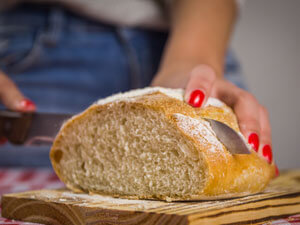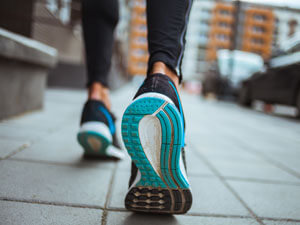If You Have to Eat Bread, Sourdough Bread Is Your Go-To
 One of the foods that I recommend people either eliminate or reduce is bread. This is because of the role gluten and grains can play in reducing the quality and strength of your bones and it also has a significant role in various autoimmune disorders. If despite all of this, you still want to have some bread you might want to consider sourdough as it is packed with health benefits that most breads don’t have.
One of the foods that I recommend people either eliminate or reduce is bread. This is because of the role gluten and grains can play in reducing the quality and strength of your bones and it also has a significant role in various autoimmune disorders. If despite all of this, you still want to have some bread you might want to consider sourdough as it is packed with health benefits that most breads don’t have.
First off, sourdough bread is a superstar when it comes to gut health. Thanks to its fermentation process, it’s easier to digest than most breads and can support a happy tummy. The fermentation process involved in making sourdough bread helps break down carbohydrates, which can lead to a slower release of glucose into the bloodstream. Plus, it may help manage blood sugar levels and reduce the risk of heart disease.
While I admit that I don’t recommend that people regularly consume bread because of the additives, gluten, and grains in bread. If you absolutely must have bread, sourdough bread is a better option. Sourdough bread also contains higher levels of vitamins, minerals, and antioxidants compared to other breads, making it a nutritional powerhouse.
The next time you’re craving a sandwich or piece of toast, don’t go for any old bread. Go for the sourdough.
How Footwear Impacts Spinal Health

Your footwear plays a crucial role in the overall health of your spine. The shoes you choose can either support proper posture and spinal alignment or contribute to discomfort and misalignments.
High heels, for instance, can place excessive pressure on the lower back and alter the natural curvature of the spine, potentially leading to issues like low back pain and postural imbalances. Conversely, supportive, and properly fitted shoes can aid in maintaining a healthy spinal position, reducing the risk of strain and injury.
Understanding the impact of footwear on spinal health empowers you to make informed choices for your well-being. When shopping for shoes, prioritize comfort and quality of material. Do NOT fall for shoes promoting shock absorption and arch supports!
Shoes should focus on providing protection os your feet and NOT providing support and shock absorption because it can promote weakening of the tissues, joints, and muscles that you have in your feet that absorb shock naturally. Part of this natural shock absorption process involves the arch in your foot collapsing and then springing back. This can’t happen if your foot arch is artificially propped up with a support.
Sometimes arch supports can help temporarily relieve some aches and pains, but they should be used just occasionally to help a sore part of your body recover (like how a knee brace can help your sore knee recover) you don’t want to weaken your feet and become dependent upon arch supports.
I use arch supports occasionally but I prefer nature’s footwear (going barefoot) and I also use minimalist barefoot running shoes that just provide foot protection and no arch supports or shock absorption.
Remember, every step you take can either contribute to a healthy spine or exacerbate existing issues – so choose wisely!

 Ever wondered if standing desks are the secret sauce for a happier spine?
Ever wondered if standing desks are the secret sauce for a happier spine?

